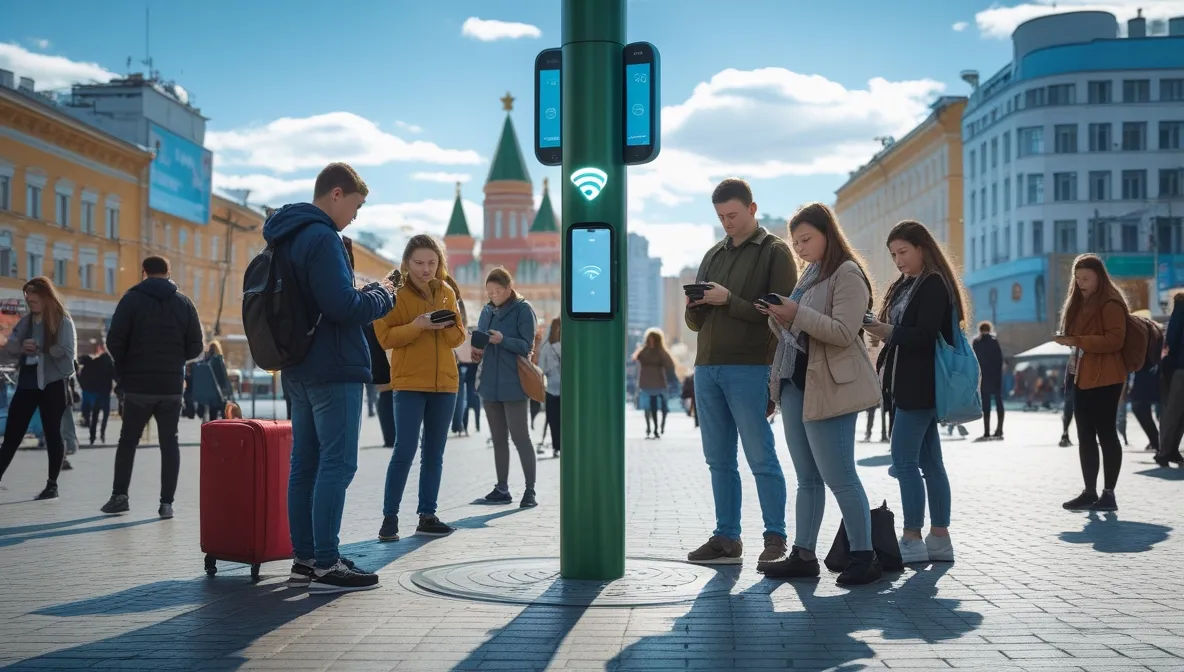Khabarovsk Region Expands Free Wi-Fi Network Amid Mobile Internet Restrictions
A new initiative in Russia’s Far East aims to enhance digital accessibility as mobile internet faces intermittent restrictions. Khabarovsk and Komsomolsk-on-Amur will soon deploy 25 public Wi-Fi access points under a joint government–telecom funding program.

Wi-Fi as a Reliable Alternative
In recent months, several Russian regions have experienced mobile internet restrictions due to security measures during drone attacks. These disruptions have highlighted the need for alternative means of connectivity, prompting the government of Khabarovsk Region to act.
Authorities plan to install 25 free Wi-Fi hotspots — 13 in Khabarovsk and 12 in Komsomolsk-on-Amur — to ensure continuous internet access in public spaces and multifunctional service centers (MFCs). The initiative was discussed during a meeting of the regional Ministry of Digital Development’s public council.

The project will rely on shared funding: telecom operators will deploy Wi-Fi infrastructure in open public areas, while regional authorities will ensure stable connections at MFCs.
Connectivity as a Business Lifeline
Local businesses have been among the main advocates for the initiative. For many companies, reliable internet access is essential for operations such as acquiring payments, running online cash registers, processing logistics, and managing digital documentation.
“Out of twenty people at the meeting, only two had cash,” noted Alexander Golovko, Executive Director of the Khabarovsk branch of Delovaya Rossiya. “If the internet stops working, stores, cafes, and services will shut down. It’s a direct hit to business.”
Currently, only a limited number of services are included in the “white list” of platforms exempt from connectivity restrictions — such as major banks, government portals, and online voting systems. The new Wi-Fi infrastructure aims to extend access beyond these essential services.

Scalability and Regional Impact
The success of the Khabarovsk project will depend not only on financing but also on strategic site selection to maximize coverage and usability. If proven effective, the model could be replicated across the Russian Far East, especially in remote areas with unstable mobile networks.
The initiative follows a broader national trend: as of late 2024, Russia hosted over 248,000 public Wi-Fi points, a 4.5% increase year over year. The strongest demand comes from retail, banking, and public services, while government projects focus on connecting schools, hospitals, and cultural spaces.
Moscow leads the effort with about 29,000 hotspots under the "Moscow_WiFi_Free" program. Citizens can access the network in parks, libraries, museums, sports centers, and public transport hubs. Rostov-on-Don has also launched a pilot program to provide free Wi-Fi in urban transport and railway stations.

Building Digital Resilience
For regional telecom operators, expanding public Wi-Fi networks offers not only social benefits but also business opportunities through increased user engagement. The long-term vision is to create a digitally resilient ecosystem where citizens, businesses, and government services remain connected even during emergencies.










































